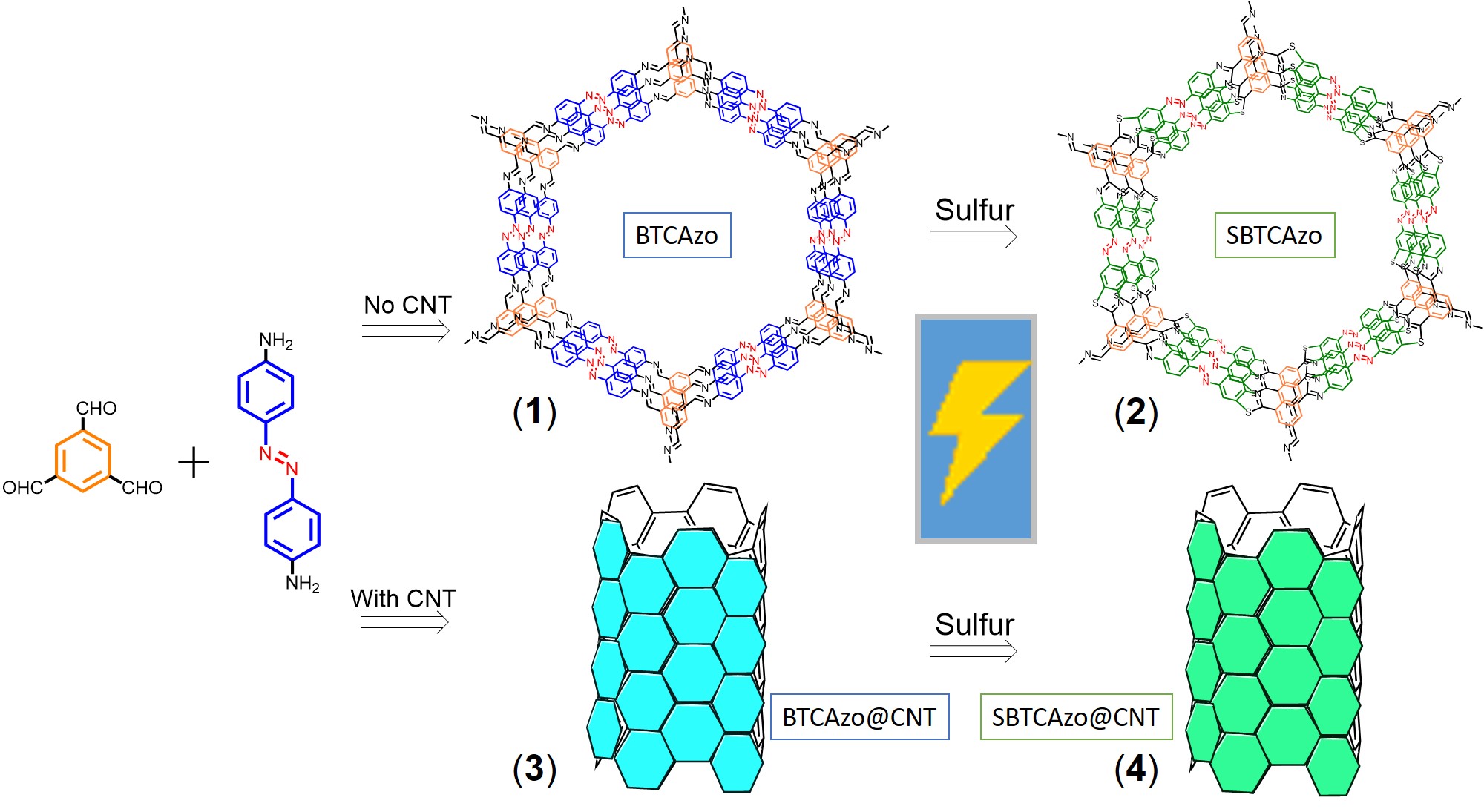|
The key to organic-based lithium-ion batteries (OLIBs) is efficient trigger of redox-active moieties and reduced solubility of organic molecules in aprotic electrolytes. Covalent organic frameworks (COFs) offer porosity, high crystallinity, chemical stability and insolubility. Coupled with an ability to selectively position redox-active building blocks render COFs as strong alternatives to small molecules. In this work, redox-active Azo groups (-N=N-) are incorporated into novel imine-linked COFs (1) and tested as positive electrode materials in OLIBs. 1 is post-synthetically modified to thiazole-linked COFs (2) to strengthen the framework under (electro-)chemical stress and to synergistically improve electrical conductivity. Few layer COFs are grown over multiwalled carbon nanotubes (3 and 4) for improved redox-activity and conductivity. 3 and 4 have similar backbone as in 1 and 2, respectively. All COFs required initial activation performed by means of cyclic voltammetry. 1 and 3 with imine-linkage showed unsatisfactory cyclability and rate capability in 1-3 V range, either at low (10 mAg-1) or high (200 mAg-1) current densities. 2 and 4 displayed clear redox behavior attributed to lithiation/delithaiation of azo groups with a stable capacity of ~200 mAhg-1 at 10 mAg-1. Further, remarkable cycling stability (> 100 cycles) at 100 mAg-1 and excellent rate capability (10 to 200 mAg-1) was achieved with 2 and 4. The thiazole moiety in the COF skeleton improves the chemical stability and we hypothesize a synergistic role of S-atom in the activation of azo groups towards redox activity with respect to Li/Li+. Ex-situ and operando-Raman spectroscopic analysis confirmed the involvement of azo groups in reversible lithiation/delithiation process in 2 and 4 based OLIBs. |

|
 123rd General Meeting of the KCS
123rd General Meeting of the KCS
 123rd General Meeting of the KCS
123rd General Meeting of the KCS